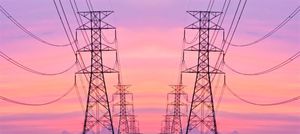
Recently featured in Science Advances under the title "Next-generation magnesium-ion batteries: The quasi-solid-state approach to multivalent metal ion storage", the new Mg-ion battery has the potential to revolutionize the industry. "It is a game-changing development," said Professor Leung.
In recent years, Mg-ion batteries have emerged as a potential solution in light of lithium-ion batteries' limitations. However, the road to developing efficient Mg-ion batteries has been fraught with challenges, including the need to overcome the narrow electrochemical window in aqueous or water-based systems, and the poor ionic conductivity in non-aqueous systems.
Addressing these obstacles, Professor Leung's team developed a water-in-salt Mg-ion battery with an operating voltage above 2 V. Yet, it still lags behind non-aqueous counterparts due to the dominance of proton over Mg-ion storage in the cathode.
"Hydrogen ions, or protons, are smaller and lighter compared to the metal ions. Because of their size, protons can easily get into the battery's cathode structure. However, this creates a problem because protons and Mg ions compete for space, which severely limits how much energy the battery can store and how long it can last," said Sarah Leong, a PhD student in Professor Leung's team and the study's first author.
The tireless efforts of the team finally bore fruit, however, with the introduction of the quasi-solid-state magnesium-ion battery (QSMB), an innovative battery design that uses a polymer-enhanced electrolyte to control the competition between protons and metal ions.
QSMB boasts an impressive voltage plateau at 2.4 V and an energy density of 264 W·h kg⁻¹, surpassing the performance of current Mg-ion batteries and almost matching the performance of Li-ion batteries.
Professor Leung stressed: "Our quasi-solid-state magnesium-ion battery combines the best of both worlds, offering the high voltage of non-aqueous systems and the safety and cost-effectiveness of aqueous systems. It represents a major step forward in the development of high-performance magnesium-ion batteries."
To put the QSMB to the ultimate test, the research team conducted extensive cycling tests, with astonishing results. Even under extreme conditions of subzero temperatures (-22°C), the QSMB retained an impressive 90% of its capacity after 900 cycles. The battery is also non-flammable and resistant to pressure over 40 atmospheric pressure. This level of durability and performance makes the QSMB a promising candidate for consumer electronics, even in colder climates.
Dr Wending Pan, a Research Assistant Professor in Professor Leung's team, believes the QSMB technology has the potential to reshape the landscape of energy storage and power our world sustainably.
He said: "The advanced electrolyte development strategy presented in our research holds potential beyond magnesium-ion batteries, extending to other multivalent metal ion batteries, such as zinc-ion and aluminium-ion batteries. We believe that this study will pave the way for the next generation of energy storage solutions that are not only efficient but also environmentally friendly."
Link to the paper: https://www.science.org/doi/10.1126/sciadv.adh1181
Hashtag: #HKU
The issuer is solely responsible for the content of this announcement.






